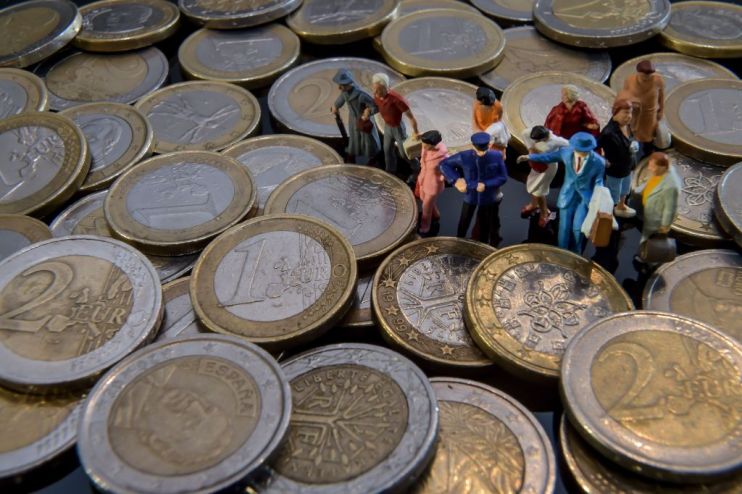‘We had to respond’: ECB defends move to splash cash in Eurozone

European Central Bank (ECB) chief economist Philip Lane has defended the institution’s decision to turn the stimulus taps back on, despite some public opposition from members of its governing council.
The bank relaunched its massive bond-buying programme known as quantitive easing (QE) and cut its deposit rate by 0.1 percentage points to minus 0.5 per cent last week in a bid to kickstart slow growth and inflation in the Eurozone.
Read more: Trump lashes out at Draghi for ‘unfair’ Eurozone stimulus
Yet some members of the ECB’s governing council quickly came out against the move. Dutch central bank chief Klaas Knot, for example, called the move “disproportionate to the present economic conditions”.
Speaking at Bloomberg’s headquarters in London today, Lane defended the policies, saying they create a cushion to insulate the economy from downside risks such as a further escalation of the US-China trade war and a hard Brexit.
Lane, the former governor of the Bank of Ireland who has been the ECB’s chief economist since June, played down the significance of public opposition from the bank’s own members.
He said the debate over restarting stimulus “is everywhere”, adding: “At the [US Federal Reserve] or Bank of England there’s not that many votes that are unanimous.”
Lane said the disagreements reflect “the nature of this world we’re in and the seriousness of these issues”. He added that at the ECB “there’s a high degree of consensus about needing to act”.
The ECB’s chief economist batted away claims that the institution is normalising extreme monetary policies such as money printing.
“The fact we’ve reopened an existing programme, I don’t think is a very dramatic decision.” He said the ECB was driven to act by a downgrade of the 2021 inflation forecast to 1.5 per cent.
When faced with this kind of downgrade, he said, “you have to respond”.
Read more: ECB turns stimulus taps back on with first rate cut in three years
Lane said he was looking forward to working with incoming ECB president Christine Lagarde, who takes up her post at the start of November.
He said the chief economist and president “will always have a close working relationship”.